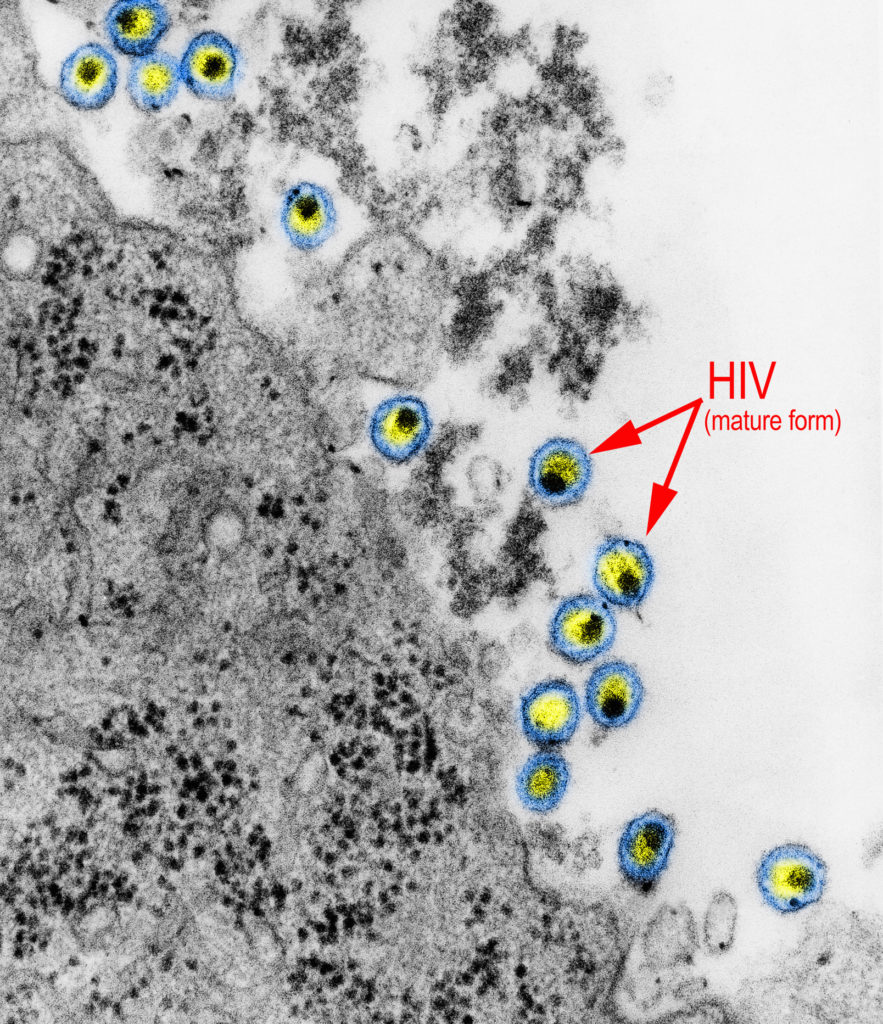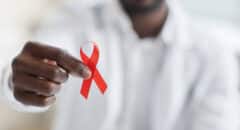
A woman who was infected with HIV in 1992 may be the first person cured of the virus without any sort of medication or any kind of transplant whatsoever, researchers reported on this week.
Many are claiming that it's was just her immune system that did the work. If this remains true, it would be the first known instance of a spontaneous cure.
The research around this subject, published in the journal Nature, outlines a new mechanism by which the body may suppress HIV. An additional 63 people in this study who controlled the infection without drugs, H.I.V. apparently was sequestered in the body in such a way that it could not reproduce, the scientists also reported. The finding suggested that these people may have achieved a “functional cure.”
Science News reported that analysis of more than 1.5 billion cells taken from a patient known as EC2 showed no functional HIV copies in any of them, researchers report August 26 in Nature. The person still had some nonfunctional copies of the virus. The finding suggests that some people’s immune systems can get the upper hand, essentially eliminating the persistent virus.
In most people infected with HIV, the virus lands near or in genes, thanks to some human proteins that shepherd it there, says Monica Roth, a virologist at Rutgers University Robert Wood Johnson Medical School in Piscataway, N.J. But in the people they call "elite controllers" who can fight off the virus, the virus is trapped in gene-poor parts of the human genetic instruction book, or genome. When it did land in or near genes, they were ones that are wrapped in the molecular equivalent of razor wire, which prevents the genes from being turned on. Collectively those inactive, tightly guarded parts of the genome are known as heterochromatin. That, effectively, locks the virus away and keeps it away.
When people on anti-viral drugs stop the drugs, HIV typically floods their blood within weeks, as “reservoirs” of proviruses in various cells and tissues spring into action. As a result, HIV cure researchers long have attempted to reduce the size of these reservoirs.

What this study is telling us is that a tiny fraction of the 38 million people in the world who are HIV-positive have this "ability" for lack of a better word. Without the help of antiretroviral (ARV) drugs, they keep the AIDS virus at undetectable levels in their blood, sometimes for many years, even though they still have HIV genes woven into their chromosomes. Now, the most in-depth genomic analysis of these rare individuals, who account for less than 0.5% of all HIV infections, reveals a clue to their success, which scientists hope will ultimately lead to new strategies to corral the virus in others.
So what does this mean for the future of HIV research and management?
“Once you figure out the mechanism [by which] this is working, maybe you can figure what goes wrong in everyone else and fine-tune it,” Roth says. The researchers have eliminated some possibilities, but haven’t solved the mystery yet of how elite controllers achieve their status.
For now, there are some recommendations for those who are HIV-positive and what they should be consuming:
According to the NIH, HIV attacks and destroys the immune system, which makes it harder for the body to fight off infections. People with HIV take a combination of HIV medicines (called an HIV treatment regimen) every day. The HIV medicine prevents HIV from destroying the immune system. A healthy diet also helps strengthen the immune system and keep people with HIV healthy.
What is a healthy diet for people living with HIV?
Follow these simple tips to get started.
1. Eat plenty of fruits and vegetables. They’re high in nutrients called antioxidants, which protect your immune system. Aim to have five to nine servings of produce each day. An easy way to meet that goal is to fill half of your plate with fruits and veggies at each meal. Eat a lot of different produce to get the most vitamins and minerals.
2. Go for lean protein. Your body uses it to build muscle and a strong immune system. Choose healthy options like lean beef, poultry, fish, eggs, beans, and nuts.
You may need to eat more protein if you’re underweight or in a later stage of HIV. Your doctor can help you figure out the right amount for you.
3. Choose whole grains. Like gas in a car, carbs give your body energy.
That makes whole-grain carbs, like brown rice and whole wheat bread, high-end fuel.
They're packed with energy-boosting B vitamins and fiber. And when you eat plenty of fiber, that can lower your chances of getting fat deposits called lipodystrophy, a potential side effect of HIV.
4. Limit your sugar and salt. Whether because of the virus or the treatment drugs you’re taking, HIV raises your chances of getting heart disease. Too much sugar and salt can harm your ticker. So aim to get less than 10% of your calories each day from foods and drinks with added sugar. You should also have no more than 2,300 milligrams of sodium per day.









